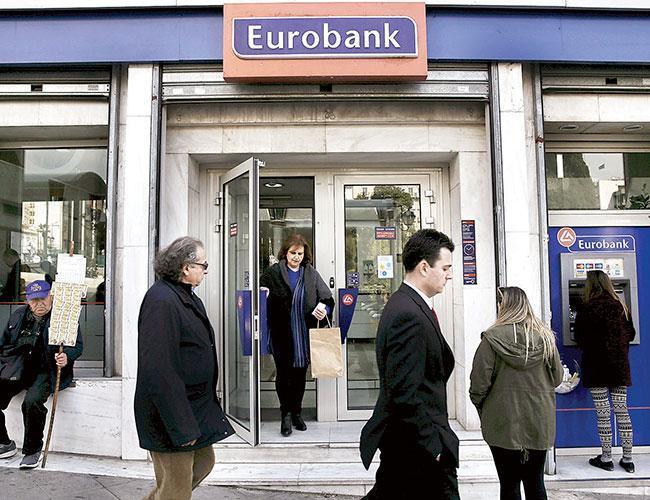
A fresh economic crisis would leave Greek banks exposed and see their capital slide by billions, the European Central Bank said on May 5 after publishing the results of a latest stress test.
The test on four major Greek banks four months before a planned exit from an 86-billion euro bailout program, showed their capital reserves would drop some nine percent on average -- around 15.5 billion euros ($18.5 billion).
The health check on Alpha Bank, Eurobank, the Greek National Bank and Piraeus Bank simulated how they would be affected by issues such as non-repayment of loans or a slump in turnover.
The putative drop is the equivalent of around half of the banks’ respective cash reserves.
The ECB said, however, that the test did not have a pass or fail threshold regarding a need to recapitalize but was merely a “general” evaluation, a spokesperson said.
The tests relate to the strength of the banks’ Tier 1 core equity ratio compared with total risk-weighted assets.
The four are among 120 banks which the ECB has been monitoring since 2014 and the latest test comes three months ahead of an August 20 deadline by Athens’ creditors on whether Greece can exit the current bailout program.
German media reports have suggested the program will be extended.
Piraeus Bank head Christos Megalou said, however, that “the economic climate in Greece is notably improved.”
Greece has received three international credit lines since 2010, amounting to 300 billion euros of aid along with help to restructure sovereign debt. The country has endured a strict austerity program in order to meet bailout criteria.
ECB chief supervisor Daniele Nouy said in February Greek banks’ efforts had started bearing fruit but that the very high stock -- around 100 billion euros -- of non-performing loans remained a thorny issue.